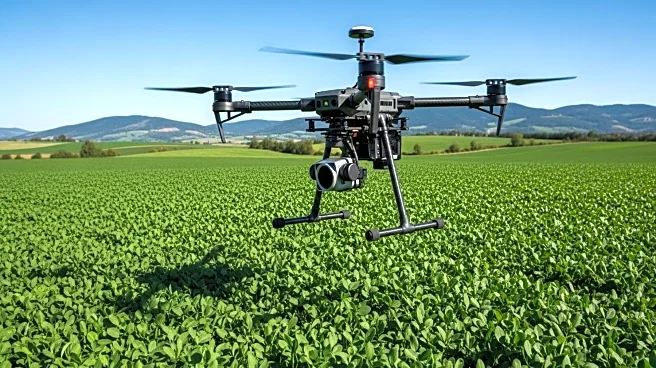What's Happening?
Dalhousie University’s Faculty of Agriculture has introduced a new program called Future Farm: Precision Agriculture Training. This initiative, supported by Upskill Canada and funded by the Government of Canada, aims to equip workers with essential skills in digital agriculture. The four-week program offers foundational knowledge in precision agriculture, covering topics such as imaging, mapping, robotics, sensors, and tracking systems. It also addresses the economic and environmental impacts of these technologies. The program includes a three-day in-person session at the Dalhousie Agricultural Campus, where participants can apply their skills through hands-on practice and engage in job readiness training. Additionally, a networking event will provide opportunities to connect with potential employers.
Why It's Important?
The launch of this precision farming program is significant as it addresses the growing demand for skilled professionals in the digital agriculture sector. As the agriculture industry increasingly adopts digital technologies, there is a need for workers who can effectively utilize these tools to enhance efficiency, sustainability, and productivity. By providing training in these areas, the program aims to prepare participants for new opportunities in the evolving job market. This initiative not only supports workforce development but also contributes to the advancement of sustainable agricultural practices, which are crucial in addressing challenges such as climate change and food security.
What's Next?
Participants of the Future Farm program will have the opportunity to apply their newly acquired skills in real-world settings, potentially leading to employment in the digital agriculture industry. The program's industry-led approach ensures that the training aligns with current market needs, increasing the likelihood of successful job placements. As the program progresses, it may serve as a model for similar initiatives aimed at bridging the skills gap in other sectors of the agriculture industry. The success of this program could encourage further investment in educational programs that focus on emerging technologies in agriculture.
Beyond the Headlines
The introduction of precision agriculture training at Dalhousie University highlights the broader trend of integrating technology into traditional industries. This shift not only transforms agricultural practices but also raises questions about the future of work in the sector. As automation and digital tools become more prevalent, there may be implications for labor dynamics, requiring ongoing adaptation and reskilling of the workforce. Additionally, the program underscores the importance of collaboration between educational institutions, government bodies, and industry partners in fostering innovation and addressing the challenges of modern agriculture.









